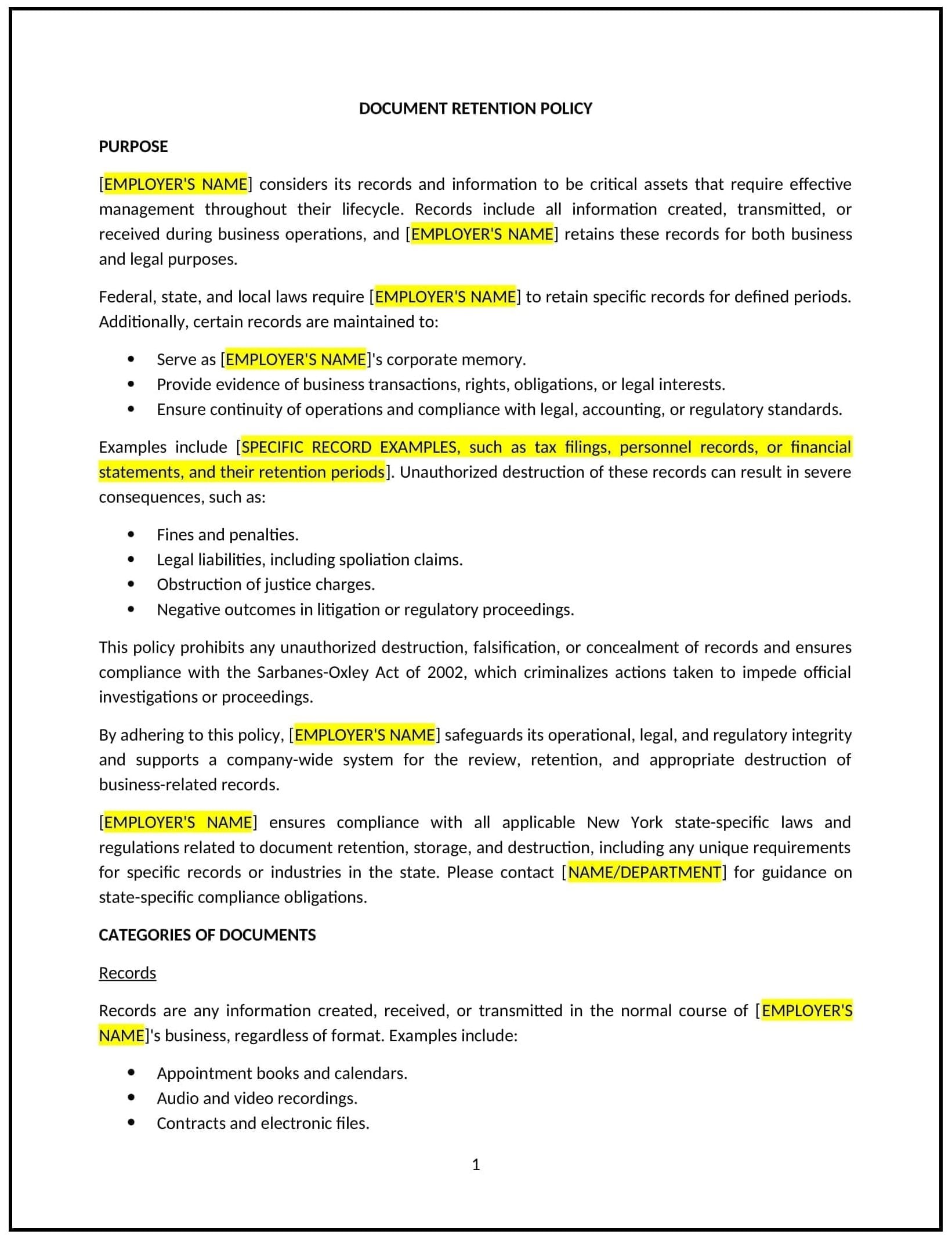Document retention policy (New York): Free template
Got contracts to review? While you're here for policies, let Cobrief make contract review effortless—start your free review now.

Customize this template for free
Document retention policy (New York)
A document retention policy helps New York businesses establish clear guidelines for managing, storing, and disposing of records. This policy ensures documents are retained for the appropriate amount of time, supporting legal compliance and operational efficiency. It covers physical and electronic records, providing a structured approach to document management and disposal.
By implementing this policy, businesses can mitigate legal risks, optimize storage, and maintain secure handling of sensitive information while adhering to applicable New York and federal requirements.
How to use this document retention policy (New York)
- Identify required retention periods: Specify retention periods for key document categories (e.g., tax records, contracts, employee files) based on New York and federal requirements. These durations should align with business needs and legal obligations.
- Define secure storage methods: Establish standards for safely storing physical and digital records, including encryption, fireproof storage, or access-controlled filing systems. Include guidance for backing up critical digital files.
- Set disposal procedures: Provide detailed instructions for securely disposing of expired records, such as shredding, incineration, or certified electronic data wiping.
- Assign roles and responsibilities: Designate individuals or teams responsible for managing the policy, including oversight of storage, access, and disposal processes.
- Review and update regularly: Periodically review the policy to reflect changes in laws, regulations, or operational needs, ensuring ongoing compliance and relevance.
Benefits of using this document retention policy (New York)
This policy offers several benefits for New York businesses:
- Supports compliance: Aligns with New York and federal laws for document retention and disposal.
- Reduces legal exposure: Minimizes the risk of penalties or litigation by ensuring proper documentation practices.
- Optimizes storage: Limits unnecessary records, freeing up physical and digital storage space.
- Enhances security: Protects sensitive information through secure handling and disposal procedures.
- Promotes efficiency: Streamlines records management, reducing time spent locating or processing documents.
Tips for using this document retention policy (New York)
- Educate employees: Provide training for staff on retention schedules, secure storage, and proper disposal methods. Ensure they understand the importance of compliance and secure handling.
- Enforce access controls: Implement strict access controls to limit document handling to authorized personnel. This prevents unauthorized access or tampering.
- Automate retention tracking: Use document management software to track retention periods and alert teams when records are due for disposal.
- Perform audits: Conduct regular audits of document storage and disposal practices to identify gaps or areas for improvement.
- Stay informed on laws: Keep updated on New York and federal legal requirements for document retention, ensuring the policy remains compliant.